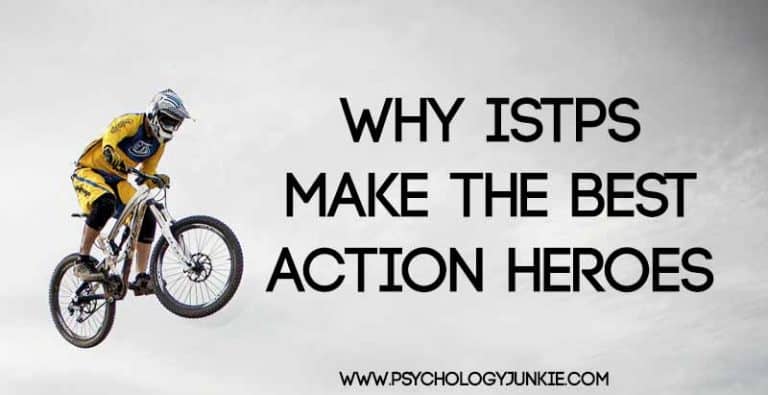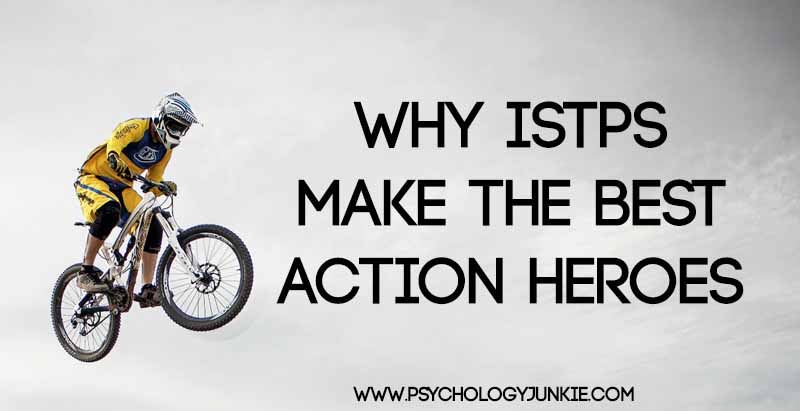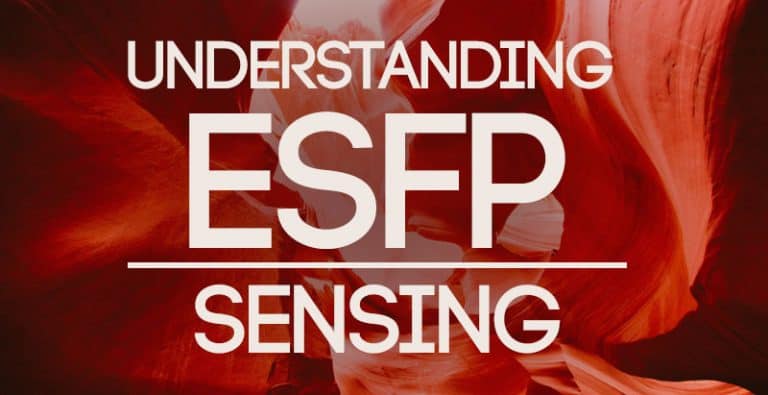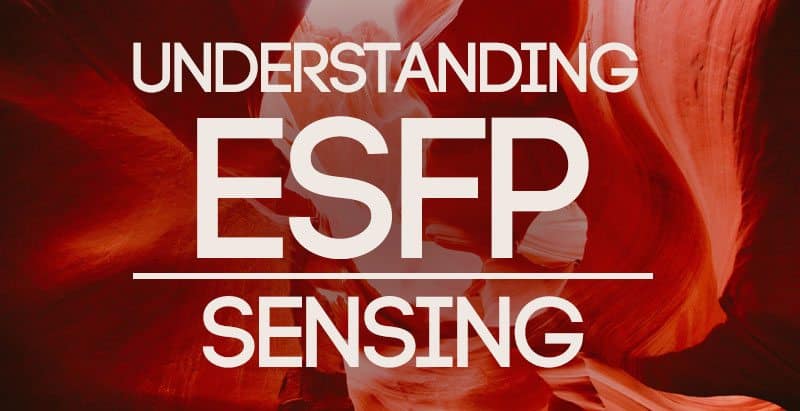Here’s How You Handle Anger, Based on Your Personality Type
When you get angry are you the type of person who blows up on the spot? Or do you suppress your anger, trying to deal with it internally rather than externally? According to the MBTI® Manual, there are four unique personality types that are the most likely to get angry and not show it. There are also four personality types who are the most likely to act on their anger. Let’s take a look at how YOU might express your anger based on your type.
Not sure what your personality type is? Take our new personality questionnaire!

Table of contents
Estimated reading time: 16 minutes
Here’s How You Handle Anger, Based on Your Personality Type
In 1992 a case study was performed to show correlation between personality type and coping resources. The study was called The Coping Resources Inventory. National sample members were asked how they “usually coped with stress” and could mark all the categories that applied. There were many options on the inventory, but the two we’ll be discussing today had to do with anger. In coping with stress, four personality types were over-represented in checking off the option, “Get upset or angry but don’t show it”, while four types were over-represented in checking off the option, “Get upset or angry and show it”. I’ll also be using some personal examples from individuals I surveyed for this article.
The Four Myers-Briggs® Personality Types Who Are Most Likely to Not Show Their Anger
Disclaimer: Every individual out there has various factors that impact how they deal with anger. If someone grew up in a family full of angry people they may be more likely to react angrily to things (or repress it to avoid a traumatic reminder). Enneagram type can also impact how someone responds to anger. Enneagram Ones are more likely to direct their anger to other activities or expressions, while Eights are more likely to show it. Nines are also more likely to repress anger until it reaches a boiling point. You can find out more about the enneagram here.
The ISFP
ISFPs are often paradoxical. They are idealistic but realistic, empathetic but often stoic. They can go from being daydreamy to highly observant and steely. According to the MBTI® Manual, ISFPs were the type most likely to get upset or angry and show it, as well as the type most likely to get upset or angry and not show it. When I asked ISFPs about this many of them said that they would simply cut off a person who repeatedly made them angry. They didn’t feel like wasting their time or energy on an antagonistic individual. Others preferred to deal with their anger on their own, sorting it out internally. Still others had a hard time not just blowing up and verbally annihilating their opponent. ISFPs like being unpredictable I think, so this is just another way that they are hard to pin down to one set of characteristics.
Things That Enrage ISFPs:
- Being told how they think
- Being labeled
- Dealing with impractical, flighty people
- Being controlled or micro-managed
- Being pressured to make a decision before they’re ready
- Bullies and antagonists
- Phony emotions or manipulation
- Fatigue or Hunger
- Being interrupted or overlooked in a conversation
- Arrogance
- Hypocrisy
Read This Next: ISFP In-Depth Profile
The INFP
This type is the second most-likely to hold in their anger according to the MBTI® Manual. INFPs dislike conflict and try to find ways to work around it. When it comes to coping mechanisms, INFPs were more likely to get alone, get a chance of scenery, or talk to a professional when overwhelmed with stress or anger. INFPs dislike causing a scene or getting involved in conflict unless one of their core values are violated. Otherwise they tend to see anger as pointless and overly-revealing. Blowing up outwardly can feel to an INFP much like showing up at a social event naked. Feelings are deeply personal and if someone isn’t worth their time, or if the irritation is only mild, they feel it’s unnecessary to make a big display. You’d have to violate something really important to an INFP for them to lash out at you in most cases. That said, they can become especially sarcastic and cynical when they are extremely stressed.
“I definitely suppress it (my anger). I either try to find a way to sympathize with the person or situation so I’ll just stop being angry, or I find a way to turn it into sadness (my preferred emotion).”
– @FiNeAhluvher, INFP Twitter User
Things That Enrage INFPs:
- Being controlled/micro-managed
- Assumptions being made about them
- Bullies
- Power-hungry individuals
- Authoritarianism
- Being underestimated or condescended to
- Injustice or unfairness
- Having their imagination stifled
- Having their feelings belittled
- Having their values violated
- Hypocrisy
Read This Next: What Each of the 16 Personality Types Loves About INFPs
The ISFJ
This is the third most-likely type to suppress their anger according to the MBTI® Manual. When I spoke with ISFJs about this most of them agreed that they prefer to keep their annoyance inside. ISFJs tend to be private about strong feelings, trying to sort them out to figure out context and reason before airing their perspectives. However, many ISFJs reported that they still like to have one close friend or confidante that they can “vent” to when they feel overly-stressed or angry. When coping with stress ISFJs were more likely to rely on their faith, get some alone time, rest, or find a happy distraction like a favorite book or TV show as a way to deal with it.
“I suppress it (anger) as much as I can. But often people can see my emotions well on my face. Oblivious people may not notice but close family members & friends will usually notice despite my efforts.” – @Michelle_1486, ISFJ Twitter User
Things That Enrage ISFJs:
- Inconsiderate or rude behavior
- Noisy, loud people
- Having their values violated
- People who are undependable or irresponsible
- Having their personal experiences de-valued
- Messiness and disorder
- Having their feelings rationalized away
- Condescension or arrogance
- Having to adjust to change unexpectedly
Read This Next: ISFJ In-Depth Profile
The INTP
When stressed or overwhelmed, INTPs may feel very angry on the inside, but according to the MBTI® Manual they are the fourth most-likely type to suppress it. Some may let it bubble up and reveal itself on occasion, but most prefer to keep a tight lid on revealing their true feelings. INTPs were one of the most likely types to try to think of options when stressed, using their creativity to solve the problem rather than dwell on it. They were also the type least likely to rely on religious beliefs, and second-least likely to talk to someone close to them. As always, it’s important to remember that there can be individual variances between people based on their upbringing and unique traits.
Things That Enrage INTPs:
- Logical fallacies in arguments
- Emotional over-reactions
- Narrow-mindedness
- Overbearing/pushy people
- Feeling micro-managed or controlled
- People who demand respect without earning it
- Emotional manipulation
- When people try to justify inaccurate or unjust decisions
- Being interrupted or talked over
- People who impede on their personal space
Middle-of-the–Road Types
The INFJ
INFJs didn’t rank on the high or low scales of anger expression in the MBTI® Manual. When speaking with INFJs I found that nearly all of them said they repressed their anger until they could have time to sort things out privately. If after time and reflection they felt that they had truly been wronged they would likely say something about it, but often with a sense of trepidation. INFJs like to have conflict-free surroundings and outwardly-expressed anger tends to create conflict rather than minimize it. Getting angry tends to be a stressful experience for INFJs because they are often thinking about how their anger might be affecting the people around them.
“I usually don’t show it (anger) until it gets bad and I have time to process it from every angle. But it depends on context…if someone I love is getting hurt it can happen instantly. Also, it’s always about the pattern, not about a single event. I’ll overlook a lot if I don’t think someone is being deliberately hurtful…and it isn’t just about keeping anger to myself. I just don’t get angry until it becomes a pattern of offensive behavior.”
– @amor_vincit_1, INFJ Twitter User
Things That Enrage INFJs:
- Having their intentions misunderstood
- Condescension
- Hasty generalizations
- Having their vision or predictions dismissed
- Controlling or overbearing people
- Bullying or Trolling
- Being pushed to make a decision before they’re ready
- Loud noises or interruptions
- Being “barged in on” unexpectedly
- Having their statements taken out of context
Read This Next: 3 Weird and Wonderful Secrets About the INFJ
The INTJ
INTJs were ranked third-lowest as the type most likely to get upset or angry and show it. When I spoke with INTJs about this, most responded by saying that they preferred to deal with stress or anger in other ways. Getting alone and away from people was the most preferred way of coping with stress. According to the MBTI® Manual, INTJs were also over-represented in using exercise, sleep, and counseling as a way of dealing with anger. “It’s not that INTJs don’t get angry”, one friend said, “it’s just that we keep it carefully contained. Our rage is just silent unless someone is continually pushing themselves into our space. Then they can expect a verbal beat down, maybe even whispered for extra intimidation.”
Things That Enrage INTJs:
- Unexpected interruptions or surprises
- Not having enough alone time
- Narrow-minded assumptions
- Being micro-managed or controlled
- Incompetence or laziness
- Loud, overbearing people
- Emotion-based decision making
- Having their advice or insight dismissed or ignored
- Being interrupted while talking
- Being pushed into social situations they’re not ready for
Read This Next: 3 Weird and Wonderful Secrets of the INTJ
The ESFJ
ESFJs tend to think about the people around them when they get angry. For this reason, many times their anger comes across as firmness and tight-lipped resolve rather than fury or temper tantrums. That said, if they are especially emotionally invested in someone and that person hurts them they can become uncharacteristically aggressive or critical. According to the MBTI® Manual and my own surveys, most ESFJs tend to deal with stress and anger by talking to someone they trust, turning to their religious beliefs, or catching up on some much-needed rest.
Things That Enrage ESFJs:
- Rudeness or inconsiderate behavior
- Mindless rule-breaking
- Being in a messy, disorganized place for long
- Wishy-washy or undependable people
- Lateness
- Trolling
- Impracticality
- Lack of empathy or concern for others
- Laziness or procrastination
The ESTJ
ESTJs often talk about being misunderstood when it comes to their anger. Their language is noticeably direct, straightforward, and frank. Sugarcoating things, sandwiching criticism with praise, or coddling is not their way of handling things. Often their straightforward nature is misinterpreted as anger when they are really just trying to save time and get to the point. Most of the ESTJs I surveyed said that they had very long fuses, but explosive anger if someone continuously disrespected them or negatively impacted them.
Things That Enrage ESTJs:
- Incompetence
- Laziness or procrastination
- Complaining or pouting
- Unreliability
- Unexpected change
- Being surrounded by mess or disorganization
- People who respond with extreme emotions to normal situations
- Impractical people
- Having their time wasted
The ISTJ
Reserved and grounded, ISTJs aren’t the types to blow up when they get angry except for in very extreme situations. While there are always exceptions (no two people of the same type are every completely alike) ISTJs overwhelmingly agreed that they were more likely to stay calm than lash out. They prefer to look at the facts and analyze a situation privately before dealing with something or someone that upsets them. They also prefer to keep offenses private, dealing with them one-on-one instead of publicly. They may seem very direct and confrontational when trying to solve a problem, but their intent is rarely to stir up conflict.
Things That Enrage ISTJs:
- Undependability
- Lateness
- Bad drivers
- Having to adapt to unexpected change
- Having their personal experiences or knowledge de-valued
- Dealing with emotionally over-reactive individuals
- Having their personal space impeded on
- Disloyalty
- Dealing with impractical people
Read This Next: 10 Things You Should Never Say to an ISTJ
The ENTJ
The last thing that ENTJs want to be seen as is “emotionally reactive”. These types hate losing control of themselves, especially publicly. They are more likely to appear confrontational or direct than angry. They don’t back down from a good debate or argument and don’t mind calling out behavior they see as unjust or incompetent. But throwing a tantrum or lashing out irrationally is not their typical way of dealing with stress unless they have anger issues that have developed over time. According to the MBTI® Manual ENTJs are the type least likely to suppress anger and least likely to show anger. While they may feel it, they tend to analyze it first before acting out on it.
“I tend to keep it (anger) in. Calm down and get it under control, then express the problem after a period of time if it’s still actual. Anger expressed in the moment can easily be alienating and counterproductive, so I try to avoid it.”
– Johannes Karlsson
Things That Enrage ENTJs:
- Being surrounded by incompetence
- Complaining or pouting
- Emotional over-reactions to normal day-to-day events
- Hypocrisy
- Having their expertise or vision dismissed
- Being micro-managed or distrusted
- Laziness
- Having to engage in small talk for long periods
- Feeling “stuck” in a situation that lacks possibility
The ESTP
ESTPs are usually able to keep their anger in check unless they are surrounded by people who are impractical and wasting their time. They like to move at a fast pace and they pride themselves on being grounded and realistic. Impractical or fanciful people can irritate them, but they’re unlikely to blow up about it. They’re more likely to just wander off and do something more interesting to them. When stressed, angry, or overwhelmed ESTPs are more likely to do something recreational to get their aggression out or distract themselves with something competitive and immersive.
- Impractical, unrealistic people
- Chatterboxes who don’t have a point
- Being micro-managed or controlled
- Feeling “trapped” in a sedentary lifestyle
- Being pushed to make a decision before they’re ready
- Being stuck in overly-theoretical discussions that don’t seem to have a real-world application
- Emotional over-reactions to ordinary events
- People who disrespect their things
- Being belittled or told what they “can’t” do
- Bad drivers or people who invade their space
The ENTP
ENTPs can be argumentative and direct, but they’re less likely to blow up or express anger outwardly. In a national sample, this type was the highest in coping with stress by “Confronting the problem”. They also ranked fourth lowest on “emotional exhaustion” and lowest on “depersonalization” according to the MBTI® Manual. When speaking to ENTPs myself, most of them said that things like physical exhaustion and hunger played a role. Sometimes types with inferior sensing (ENPs and INJs) can forget to take care of their physical needs and then anger can show up because they are physically exhausted or malnourished. When stressed, ENTPs prefer to brainstorm options, exercise, or get alone to calm down.
Things That Enrage ENTPs:
- Narrow-mindedness
- Logical fallacies
- People who misinterpret them as “mean” when they are trying to argue a point
- Being stuck in long, detail-heavy, mundane discussions.
- Having their ideas dismissed or laughed at.
- Lack of freedom or personal control
- Being micro-managed
- People who demand respect without earning it
- People who impede progress or innovation
The ENFP
ENFPs were a mixed bag when it came to anger. Some blew up right away while others suppressed it only to get angry when they reached their breaking point. According to the MBTI® Manual, ENFPs are more likely to talk to a professional or develop physical symptoms when dealing with stress than other types. In my own surveys, I noticed that ENFPs who were also type 7s (in the enneagram system) distracted themselves from whatever was causing the anger. They preferred to get involved in an activity, spend time with friends, or find a distraction.
Things That Enrage ENFPs:
- Narrow-mindedness
- Being micro-managed/controlled
- Having their ideas dismissed
- Inconsiderate behavior
- Emotional manipulation
- Guilt-tripping
- Condescension
- Being “labeled” or underestimated
- Lack of empathy
- Having to spend a great deal of time on nitty-gritty, mundane tasks
Read This Next: 10 Things You’ll Relate to if You’re an ENFP
The Four Personality Types Most Likely to Express Anger
The ISTP
This type is the most likely to get upset or angry and show it, according to the MBTI® Manual. However, when I surveyed ISTPs in groups and forums, many of them said that they rarely got angry. In fact, the results shown in the MBTI® Manual versus the results I found among self-reported ISTPs was so different I’m even hesitant to list this type here! Many ISTPs said that they had a very long fuse but big explosions. Many also stated that they would get angry when being forced to talk about their emotions or feelings because this tended to make them feel awkward or uncertain. “We process our anger through Ti”, said Justin, an ISTP I worked with at one point. “We rarely take things personally because we’re pretty detached from the situation around us most of the time. Particularly emotions. But if our Se takes over we can be explosive and intimidating.”
Things That Enrage ISTPs:
- Emotionally over-reactive individuals
- Lack of respect for their personal space
- Being controlled or micro-managed
- Respect being demanded without being earned
- Being forced into decisions before they’re ready
- Lack of alone time
- Bureaucracy and wasteful rules
- Being forced to talk about their feelings
- Feeling trapped or sedentary
- Impractical people
- Being stuck in roundabout, unrealistic conversations
The ISFP
Ever enigmatic, ISFPs registered as the type most likely to get angry and show it, as well as one of the types most likely to get angry and not show it. According to the MBTI® Manual, ISFPs ranked highest of all the types in suppressing anger, and second-highest of the types most likely to show it. Either way, ISFPs seemed to experience anger as a way of coping with stress (whether they showed it or not). This matched up with my conversations with ISFPs who seemed to have very strong preferences for either suppressing or acting on their anger depending on the context of the situation.
The ESFP
ESFPs were listed as the third most-likely type to get angry and show it according to the MBTI® Manual. When I surveyed ESFPs this seemed to add up for the most part (there are always individual exceptions). Many ESFPs stated that they would initially react, either at something or someone in their environment. Venting, talking about their stress to someone, and getting their frustration out externally seemed the preferred way of coping. Most of the ESFPs I spoke with said that they felt better pretty quickly after being able to blow off some steam. Many also said they were very quick to forgive and move on.
Things That Enrage ESFPs:
- Feeling controlled or micro-managed
- Feeling trapped or stifled
- Being stuck in a sedentary lifestyle
- Lack of empathy
- Inconsiderate behavior
- Being underestimated or mocked
- Having their time wasted
- Being stuck in circular, theoretical conversations that have no practical application
- Unrealistic, emotionally-reactive people
The ENFJ
Surprisingly, ENFJs were listed as the fourth most-likely type to get angry and show it (according to the MBTI® Manual). I say surprisingly because most ENFJs I know are pretty slow to anger. That said, the numbers still weren’t especially high. 36.6% of ENFJs selected the option “Get upset or angry and show it” as a way of coping with stress. That means 64.4% didn’t. When I spoke with ENFJs about this I got a mixed bag of responses. The only consistent theme they mentioned was that they do like to vent to someone when they are upset. Holding anger in and suppressing it was rarely preferred. ENFJs like to have at least one confidante who they can share their true feelings with. Without this form of expression, many said they would have a hard time processing their stress or anger effectively.
Things That Enrage ENFJs:
- Having their intentions misrepresented
- Being misunderstood or distrusted
- Having their words taken out of context
- Lack of empathy for others
- Inconsiderate or rude behavior
- Narrow-mindedness
- Having their ideas belittled or dismissed
- Being interrupted
- Having to focus extensively on detailed, mundane, impersonal tasks
- Betrayal of a friend or loved one
- Bullying or trolling
Read This Next: What ENFJs Do When They Get Really Stressed Out
What Are Your Thoughts?
Did you enjoy this article? Do you have any experiences or insights to add? Let us know in the comments!
Find out more about your personality type in our eBook, Discovering You: Unlocking the Power of Personality Type.












I am an INFJ and have tested as such repeatedly over multiple years, but I have a pretty bad anger problem. I find my anger tied closely to my anxiety and how easily I become overwhelmed by things like inconsistency and changed expectations. I also frequently respond in anger or defense when I feel judged by those around me. It’s certainly one of the things I am least comfortable with as far as my personality goes and I do actively work on it, but it is one of my least INFJ-seeming qualities. Interesting article!
Hi Susan thanks for the article and insights. INFJ here. Your article fits me to a T. I hate conflict and usually will go to great lengths to avoid it and cannot stand people who loudly express their anger in public. All the points listed describe me exactly, especially, being barged in on, condescension, bullies and being misunderstood, which I experience a lot. Even when I spell things out quite plainly, I can almost see the little cogs in people’s heads interpreting it a different way. It’s one thing that has baffled me all my life. It kinda helps knowing that it is all part of INFJ territory but extremely annoying and perplexing none the less, especially when honourable intentions are completely misread and don’t get me started on people who “know what I meant”. Thanks for all the great stuff you send. Look forward to reading more.
I respect the way you worded your comments on the ISTPs. I’m an INFJ. My experience with every ISTP I have known personally is that the research is right. I’m not sure what accounts for their personal assessments of not expressing their anger, but the ISTPs I know not only express their anger verbally and emotionally, but also physically.
This article is very misleading and a waste of time. Nowhere do you actually provide your thoughts or someone’s experience in handling hanger for each of the personality types.
You should tell us your personality type when you reply so we can understand the situation better. -ENFP Ennargram 7 (8 wing)
Esfp here and I just came here to see if it was normal that I was very angry when someone mocked me at work and now Im totally aware of that
You obviously don’t know anything about an INFJ. When pushed to a point an INFJ becomes the devil!. Satan would run screaming! Do some real research before writing about topics like this. I can be the sweetness kindness person on Earth. Push this or any INJF and see what happens. Lol! You’ll be in shock! Maybe even wounded if you deserve it.
Lol the author IS an INFJ, and I’m fairly certain she does thorough research. I’d wager she knows more about this stuff than you do.
Fascinating. My ex wife is an INTJ, the perfect match, supposedly, for my ENTP personality. The “Things that enrage an INTJ”, pretty much describes me, but I am wondering how much of that is my ADHD, like interrupting, or doing the unexpected… Just analyzing the past. I am glad to be free of her, as she is an insecure narcissist, exhibits traits of borderline PD and is an extreme parental alienator.
I have to say, you nailed the ENTP. We are analytical problem confronters. Nothing thrills ys more than free reign to solve a problem creatively.
I am ISTP. I hate being forced about anything and won’t tolerate but being forced to talk about feelings won’t enraged me. Just a little annoyed.
“Blowing up outwardly can feel to an INFP much like showing up at a social event naked.” BWAHahahahahahaha!! This is so true! I have blown up in anger once, due to a growing frustration of not understanding my high school Chemistry class (I am hard of hearing) and I even singled out in anger a person about to repeat what I said. I regret it, but the frustration was very valid. In future blowups, I would rather show up naked to a party, than blowup in front of a stranger, or even a person I do not respect. Seriously. At least I can explain away my nakedness and ask for clothes, whereas there is nothing I can do to hide my feelings once I express them. Whenever I express my feelings to someone I do not know that well, it’s like giving that person keys to my house and letting them touch whatever they want. Anyways, thanks for the humorous and aptly described analogy! Have a great day Susan!
For once, there is a post where I, as an ENFJ (8w9) feel adequately represented. I am maybe not the easiest to truly anger, I mostly just get annoyed and petty, but I show it and say all that is in my mind. Keeping things in will solve no problem, and believing that no confrontation will bring peace, in my opinion, is pathetic. Finally, there is something that represents the side of ENFJs that let it out instead of pretending all is well, like some wishy-washy doormat.
ISFP here. I totaly agree with the ‘paradoxal’ part. Depending on the situation, I feel like I’m constantly shifting between the two extremes.
My closest friends and family often says that I clearly express my anger with them, but choose to not show it with others. I also don’t like to show my anger in front of people. The list is also accurate for me!
I almost always test as an INFJ, sometimes INTJ, but your remarks about anger in INFJs fit like a glove. Interesting.
I’m an ISTP and yes, I rarely get mad or upset but it doesn’t mean I forgave and forgot because I actually hold grudges, silent ones. It’s like saving up small droplets of water (upsetting memories) in a tall glass then with one bad drop, a stimuli, everything will get spilled and yes, explosion of anger. Pent up emotions get into an ouburst. People think I’m okay with whatever they’re doing but I’m actually observing and marking them “strikes” silently in my head. I cut ties when I fume badly on a person forgetting even years of good friendship. I’m not sure if it’s just me or it is common to ISTP females, though. The list you gave is accurate. 😄
I’m also an ISTP female and i partially agree with you. I rarely get mad at people around me, but when I do, I repress the anger and later on that same day I might outburst with anger at my close ones (very good freinds that know other sides of me/ family members), and they wouldn’t know where that came from. For some reason it’s easier for me to express anger towards my close ones rather than, for example, friends that i sometimes talk to.
Thank you for this post! I am an ENFJ, and feel so validated by your write up on us. I participate regularly in some online forums for ENFJs. When I have reached out to others on the forum about my anger issues, most of the responses I get are that ENFJs are very slow to anger and likely not to show it. NOT TRUE! My experience is exactly as how you have described it here.
As an ISFP this is fascinating because both are accurate for me. Definitely enjoyed this article!
As best I can tell I’m an ISFP, and I do feel like a walking paradox on many levels.
I would say that I’m fairly slow to anger and forgive pretty readily if it’s a first offense. But each additional time the same person makes me angry in the same way, it starts to build up…..then when it gets to a point where I do finally say something assertive, I tend to blow up disproportionately to the current offense, because I’ve held back so many times already. Then I get made fun of for “having a temper”, or dismissed as being “overly sensitive”. In reality I’m pretty forgiving and easy-going most of the time, and not much will make me truly angry. The ETJs seem to be able to drag it out of me though, lol.
I prefer to have time to myself when I feel angry, to process my emotions and figure out the best way to sugarcoat my comments if I do need to confront someone.
I also find that people who repeatedly stress me out tend to make me angry, even if they mean well. I feel a strong temptation to cut them out of my life, but that isn’t always possible or the right thing to do.